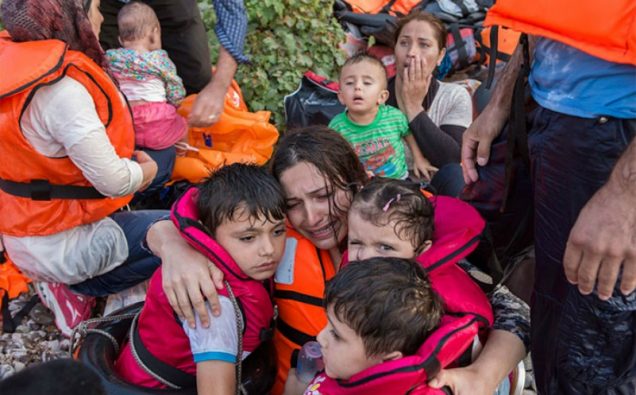
May was one of the deadliest months for refugees and immigrants escaping Middle Eastern and African conflicts and impoverished regions to cross into Europe through risky journey on the Mediterranean Sea.
The last week alone saw at least 880 people drown in the sea when overcrowded and unsafe vessels capsized. By some accounts deaths at sea totaled more than 1000.
Fatalities along the dangerous crossing route have risen to 2,510 in the first five months of the year.
The UN refugee agency says some 1,855 refugees had died in the crossing in the same period in 2015 and 57 in the first five months of 2014.
Figures tell that so far this year, 203,981 people have made the journey on the Mediterranean.
“The odds of being among the dead are currently one in 81,” says William Spindler, spokesperson for the Office of the UN High Commissioner for Refugees.
According to new information cited by the United Nations from people who landed in Augusta over the weekend, 47 people were missing after a raft carrying 125 people from Libya deflated. Eight others were reported separately to have been lost overboard from another boat, and four deaths were reported after fire aboard another. These figures bring last week’s death toll to 880.
“While the Secretary-General (Ban Ki-moon) commends the brave efforts of the joint Italian and European search and rescue operations, he calls on concerned Governments and organizations to redouble their efforts to save those at risk at sea and to counter the migrant smuggling and human trafficking networks in the Aegean and Mediterranean Seas,” says a UN statement.
But will the UN chief’s call translate into action?
The world powers immediately need to respond to this massive humanitarian crisis for the suffering humanity that has been pushed out of homes and exposed to a precarious world with children and women.
The world body says Turkey-Greece route accounted for three quarters of the nearly 204,000 people who made the journey prior to the end of March.
Here are some of the UN-provided figures that highlight the predicament of refugees. Their safety and protection is the duty of all countries.
Some 46,714 travelled to Italy. The North Africa-Italy route is dramatically dangerous: 2,119 people, or one in 23, died.
The majority of boats departing Libya are at present reported to be leaving from the Sabratah area to the west of Tripoli. And as in the past they remain more crowded than those that have normally been seen on the Turkey-Greece route, often carrying 600 or more passengers, and sometimes being towed by larger fishing boats which in turn puts them at risk, Mr. Spindler said.
According to some unconfirmed accounts, the recent increase in numbers is linked to efforts by smugglers to maximize income before the start of the holy month of Ramadan, in the coming week, he said.
Survivors told that smuggler hubs operating in locations including Niger remains active in feeding people from West Africa through to Libya, where many remain for many months before being put onto boats for the crossing to Europe.
Nigerians and Gambians are the most prominent nationalities travelling from Libya to Italy so far this year. Somalis and Eritreans, who are among countries more commonly associated with refugee movements, accounted for nine per cent and eight per cent respectively.
Reports of trauma from sexual and other forms of gender-based violence among women making the journey – or being trafficked – appear common. Some women have told they were subject to sexual slavery in Libya. Arrivals of unaccompanied children are on the rise.
These people on move must not be seen as burden. Some politicians and ethnic groups have chosen to play politics on the issue of refugee influx into Europe. Others like Canada and Germany have opened up their doors to take in large numbers of refugees.
While there is no denying the fact that in the immediate context, the arrival of refugees raises new challenges for the host countries, the world can hardly afford to turn its back on the hapless people. Some of the refugees are skilled people who bring new talents and skills that, according to a recent IMF report, can help stimulate national economies.













